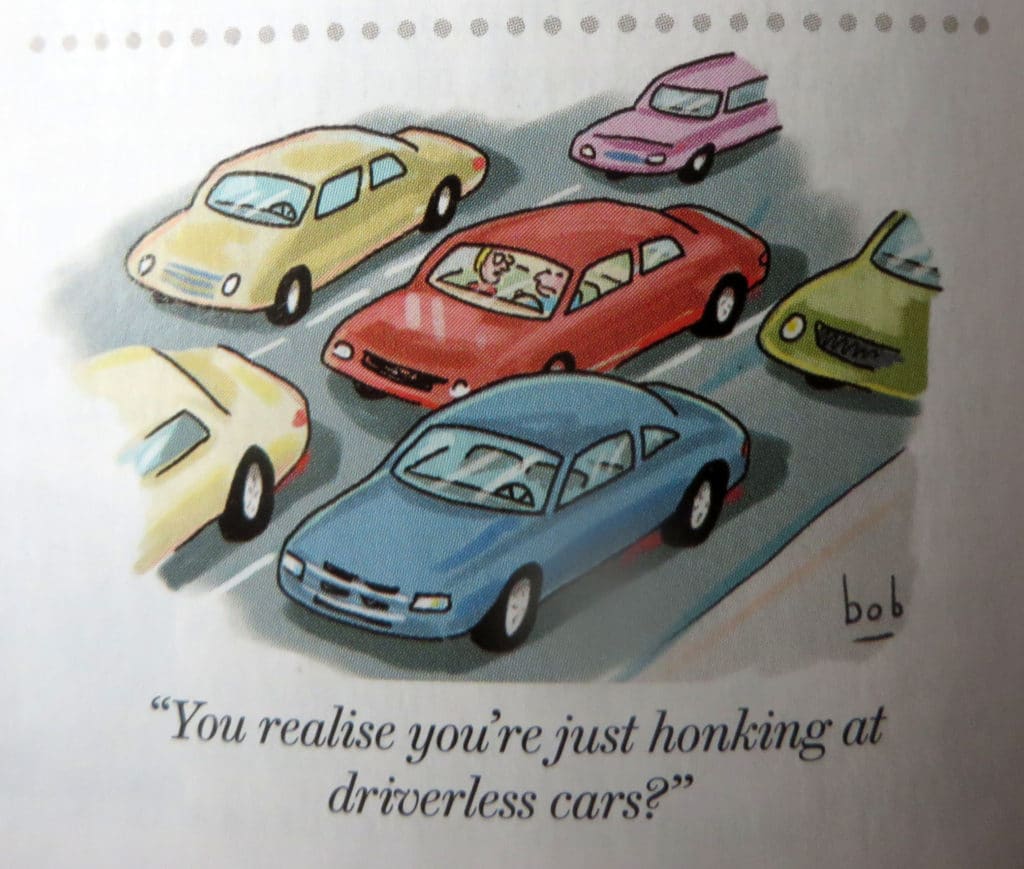The invention of the automobile and it’s subsequent incorporation into mainstream society had a tremendous impact on the world. Autonomous cars are now being hailed as the next revolutionary adaptation in human mobility. Are autonomous vehicles really what companies like Uber and Google promise as the future of driving? Are there negatives of automated cars, and what kind of benefits can they potentially bring the consumer?
What Exactly Is An Autonomous Car?
You might be surprised to hear this, but the vehicles that have been in the news that are being tested on our roads by Uber and Google aren’t technically “autonomous”. Although you won’t find anyone in the driver’s seat with hands on the wheel, there is still a human safety driver. These drivers are there in case the vehicles enter areas with difficult to distinguish traffic lines, construction areas or the system malfunctions. Fully autonomous cars are still in the testing stage, but recent news of automobile accidents as a result of semi-autonomous automobile mistakes makes it obvious that there are still faults in these vehicles as well.
Automated cars have been making strides over the past decade or so. Years and years ago, the only serious conversation you could have with someone concerning automated cars was about a sci-fi film. Nowadays, tech and automobile companies are pumping millions into what many see as a fast approaching emerging market.
Benefits
First and foremost the most obvious benefit of automated vehicles is the fact that you won’t have to worry about actually driving. Imagine, instead of having to make your daily morning commute through heavy city traffic, you could simply input your destination into a computer screen and your car takes you there.
Approximately 1.2 million people are killed every year in traffic accidents, and approximately 30,000 of these deaths are in the U.S. Automated vehicles promise to decrease these numbers significantly. We can already see the effects of automation in new cars, such as forward and rearward collision warning systems. These systems brake automatically if sensors detect an imminent collision.
Another benefit of driverless cars is that our roads will be made significantly more efficient. Not just in terms of better traffic flow, fuel consumption will also be better. Automated vehicles are designed to optimize efficiency in acceleration and braking, this will have the effect of lowering Co2 emissions.
Uber
The road toward autonomous cars has not been without its potholes. Most recently, Uber made the news as the result of a settlement that the company reached with the family of a woman that was killed by an Uber self-driving vehicle. The woman was walking across the street in Phoenix, Arizona when the autonomous vehicle failed to stop.
As a result of this incident Uber’s self-driving program has been put under intense scrutiny, and Uber was suspended from testing automated vehicles in Arizona. Incidents like this place a spotlight on the problems surrounding autonomous car development.
Issues With Automated Cars
There are a range of technical and ethical issues that must be solved before we begin to see a wave of automated vehicles on the streets. Autonomous cars work through a variety of sensors and computers that can monitor the vehicles movement with extreme precision.
Human vision is replaced with cameras, but these are susceptible to some of the same issues that any everyday camera would be. Extreme sunlight, and weather can cause the cameras to transmit inaccurate information, which could potentially have disastrous effects for the vehicle’s passengers.
Another major issues for automated vehicles are humans, well specifically human drivers. We make mistakes every day when we are driving around town, and to work. Usually they are small mistakes, but we all make them. Automated vehicles are not built to make traffic mistakes, and when human drivers make them, automated vehicles have shown difficulty in adapting.
The Future

There are certainly issues associated with automated vehicles that will continue to plague the technology until manufacturers develop a solution. None of these issues seem insurmountable however, and progress is being made every year in the pursuit of solutions.
I believe that autonomous cars are essentially the vehicle of the future. It certainly won’t be this year or the year after that, but within the next decade automated vehicles will be making waves in the general automobile market.
What effects this change will have on society we can only guess at, but rest assured when car manufacturers solve the technical issues associated with automated vehicles, there will be no stopping them.
